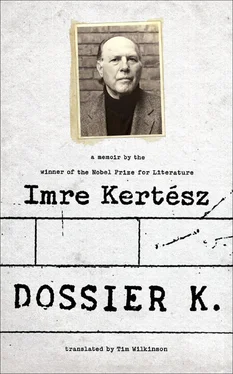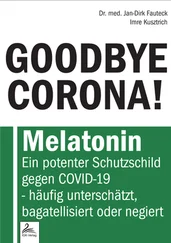So, your maternal grandfather remarried, then at the end of the First World War the family … fled, was that, to Budapest?
That was how they saw it, I reckon.
Your grandfather abandoned a sure livelihood, his post as a bank official — there must have been some pressing reasons compelling him. How old was he?
I’m not absolutely sure about that. He would have been about forty years old. It’s perfectly conceivable that the bank would have gone belly-up even without Romanian help. I’m more inclined to think that Hungary’s loss of the war hit my grandfather a bit too close. He may well have viewed it as a personal failure; he identified with the collapse and lost his footing in the panic of defeat. Of course, that was an unconscious process, but it happened to a lot of people. At such times one bad decision follows another; people give way to mass psychosis and either slip into deep depression or join the crowd in baying for revenge. It’s curious that no one in Hungary has properly analyzed this phenomenon, although the interwar period in Hungary in particular — along with Germany, of course — produced by the barrel-load the sort of psychoses that prepared people to accept the most dreadful dictatorships and the catastrophe of the Second World War.
You say that people in Hungary haven’t properly analyzed the phenomenon, but have you read about it anywhere else?
I seem to remember that Sebastian Haffner, a superb German writer and journalist who fled to London from Hitler, deals with the subject in his books.
But I don’t suppose your grandfather was among those who bayed for revenge .
All the less so as he was Jewish, and the sharply anti-Semitic line that dominated Hungarian public life between 1919 and 1924 must have been very trying for him, since he had fled from the Romanian occupation of Transylvania to what was referred to as the “mother country.”
Did he speak about that?
Never. And anyway, even if he did, he would not have done so to his grandson, who was just a child. To be quite frank, no relation of confidence ever developed between us, nor could it have done, as we saw each other only seldom. It could be, therefore, that everything I have said about him is purely speculative, but I cannot explain the aristocratic restraint from behind which the lethargy of defeat was perceptible. When I was a young boy I regarded that as an extraordinarily moving trait, though I wouldn’t have been able to give it a name at the time, of course. At all events, he was not a great intellect; when he went into retirement, out of his own resources and with help from the family he purchased a modest two-room house in Rákosszentmihály, 2where he lived with his wife, who I only found out later was not my “real” grandma. Every now and again, my mother’s side of the family would get together in that small Rákosszentmihály house on a Sunday evening. By then the Second World War was already in progress. My grandfather would gather the menfolk and usher them into the second room and, brows furrowed by concern, his voice almost a whisper, he would ask, “Now then, what’s new? What have you learned? What’s going to happen?”
I daren’t ask “what did happen?”
Both of them were murdered in Auschwitz. From the window of the cattle truck they were able to throw a letter card addressed to my mother: “We’ve been stuck on a train, we’re being carried off somewhere, we don’t know where”—that, roughly, is what it said.
Does the letter card still exist?
My mother had it for a long time. I still remember today the downward-sloping two lines scribbled in pencil on the grey-coloured paper.
And how did the letter card reach the addressee?
Some kind-hearted soul must have found it, put a stamp on it, and posted it. My mother was still at her own address, but during the forced “clustering” of the Jewish population she moved into a “Yellow Star” house in Gyöngyhaz Street. 3As you no doubt know, before a ghetto was set up in Budapest, there was an ordinance that decreed that several Jewish families were to move in together into single properties. The resulting houses of mass lodgings were then referred to as “Jewish houses” and a yellow star was nailed up over the entrances. I myself was living in a house like that before … how should I put it: before I was “arrested,” specifically with my stepmother at 24/B Vas Street, 4where her entire family “moved in.”
Let’s go back a little to Budapest before the war. Your father and mother had divorced, and meanwhile they had put you in a boarding school for boys as a full-boarder. When was that?
Around 1934. I was five and the youngest pupil at the institution. I completed the four years of my elementary schooling there. “Let’s leap to it!” says old whatshisname in Zsigmond Móricz’s Faithful Until Death …
Póslaki .
Yes, of course: good old Mr. Póslaki!
Do you like that book?
I was fond of Misi Nyilas, the poor lad. And also of Nemeček and the rest in Ferenc Molnár’s The Paul Street Boys . And Winnetou and loads more, but most of all C.S. Forester’s Captain Hornblower book.
I’m not familiar with that .
Marvellous book! Solace for my sick soul. Incredible as it may seem, the book was published in 1943, right in the midst of the war! I was given it as a present by my governess, Auntie Susie (I called her Auntie even though she can only have been in her early thirties and incidentally the favourite target of my amatory awakening and sexual fantasies, of which the lady in question would have known nothing), who came to the home in Baross Street twice a week to cram a bit of Latin grammar and mathematics into my dim-witted head. I was thirteen then, and the book was a bar mitzvah gift. You know what that is, don’t you?
Sure. A coming-of-age initiation on a boy’s thirteenth birthday, rather like Confirmation for Christians .
So, it was necessary to pick a rabbi to conduct the service. The done thing for a boy at the Madách Gymnasium in Barcsay Street 5was to pick the religious instruction teacher, a certain Itzak Schmelczer, who had a silvery moustache and a neat little goatee. I liked his Old Testament stories in which lords of the desert at the head of their flocks meet up and, as a token of good will, slaughter and roast a kid goat. My mouth would be drooling by the end. I thought the Hungarian word for kid ( gödölye ) had such a splendid ring that for a long time I thrilled in its sheer sound without having a clear idea of what exactly it meant. My father instructed me to ask him what his price was for a bar mitzvah. You want me to ask? Tell him your father asked you to. I shilly-shallied for days before I plucked up the courage to approach the teacher’s desk and ask: Oh, yes, my father said to ask the teacher what it costs for a whatsitsname, er … The world did not collapse around me, and the floor didn’t open up before me, as I was half-expecting it would; instead the rabbi responded: Tell your dad that I’ll take it on, and the price is a goose. I would have been happier if he had said gödölye . And just to be clear, that was 1943 and the black-market price for a goose was a hundred peng? — quite a substantial sum in those days. 6The bar mitzvah went ahead; the rabbi and packed congregation sang psalms, and during prayers the elders announced aloud the donations that were intended for the synagogue. I personally was present in my dark-blue, braided, Hungarian-style best suit, a so-called “Bocskai” suit. The utter absurdity of the situation was thereby complete, but evidently no one grasped that. Anyway, I didn’t particularly want to talk about that …
Читать дальше












